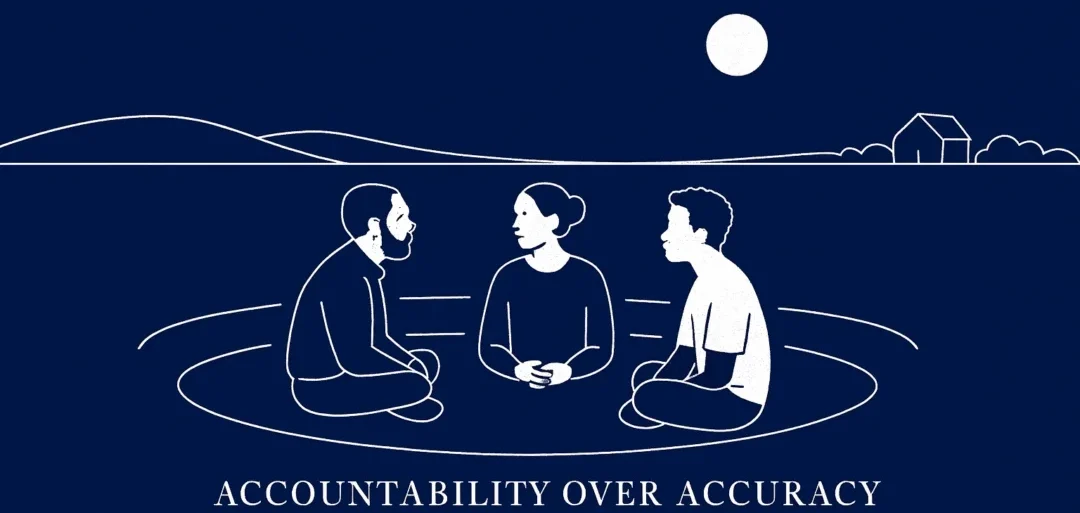Accountability Over Accuracy
Lead with repair and impact over being right; accountability widens trust and choices.
Core Connections
- Atlas Anchors: Shared Space, The Field, Space as Home
- Charter Expression: Space Holds Trauma and Healing
Why This Matters
When harm happens—and it always does in human systems—our instinct is often to defend our intentions or prove we were “right.” Being technically correct while relationships fracture creates pyrrhic victories.
Accountability Over Accuracy recognizes that repair restores the relational field and expands possibility. It’s not about abandoning truth, but understanding that impact matters more than intent, and that widening the circle of trust creates more options for everyone.
Practice It Today
- Name what happened without minimizing: “I interrupted you three times in that meeting.”
- Acknowledge impact before explaining intent: “I see that shut down the conversation.”
- Co-design repair with those affected: “What would help restore trust here?”
- Close the loop by following through and checking back in.
You Need This When
- Defensiveness dominates after mistakes
- The same debates loop without resolution
- Trust remains low despite “resolved” conflicts
- People stop raising concerns
Ethical Cautions
Don’t weaponize apology as a way to escape consequences. Don’t rush others toward forgiveness on your timeline. Accountability is a practice, not a performance. Some harms require sustained repair over time, not single conversations.
Related Practices
(Coming Soon) Active Receptivity • Boundaries as Compassion • Ethical Grounding • Dialogue as MethodAbout Robert Levey
Spaciology is not abstract theory; rather, it is a practice you can feel.
- Inside: Pause, breathe, notice.
- Outside: Design rooms, rituals, and agendas that slow the spin and invite care.
- Between us: Make dialogue a place where different truths can live together long enough to teach something.
Ultimately, leadership is the art of making space for what’s important (for everyone) and letting that clarity shape the next step. When we change the spaces from which we lead, our strategies change with them.

